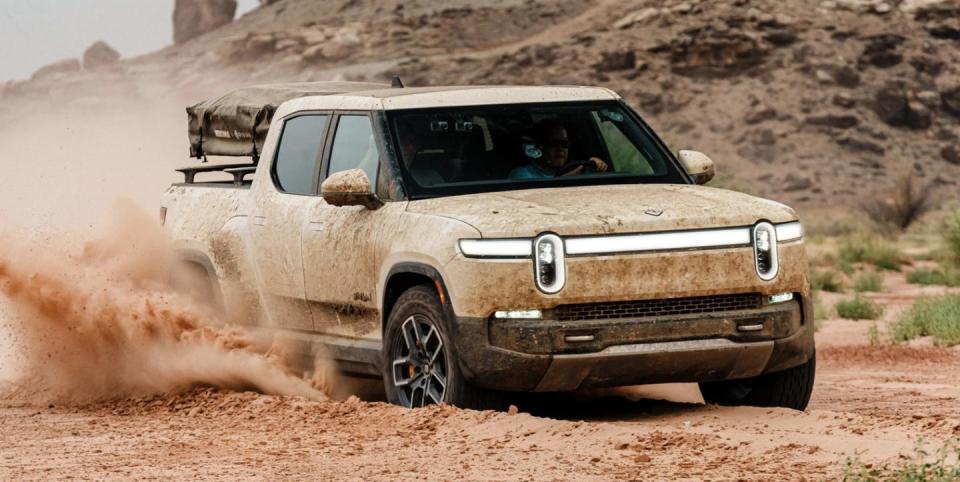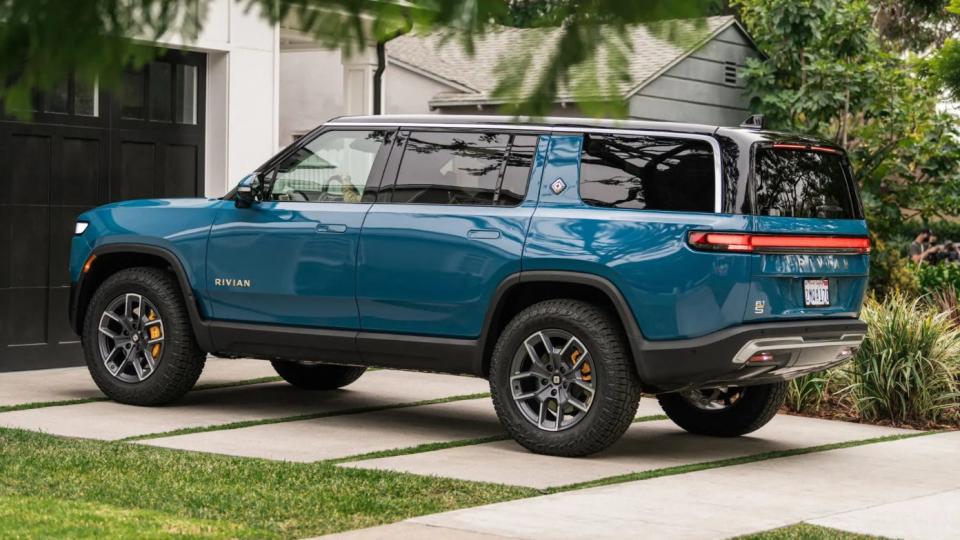Rivian’s Wild Week Obscures a Larger Startup Issue

Rivian reports deliveries of 1227 vehicles in the first quarter, along with a $1.59 billion net loss.
The company says it has 90,000 reservations for current models, and still plans to produce 25,000 EVs this year.
The EV maker's stock sees all-time lows as rumors swirl, and as the chip shortage continues to constrain production.
Rivian had an eventful week, one that kicked off with its stock dropping to a record low amid industry-wide component shortages that have taken a fair amount of wind out of automakers' sails.
The EV maker revealed this week that it had produced 2553 vehicles while delivering just 1227 vehicles in the first quarter of this year, while posting a net loss of $1.59 billion.
On the positive side, the company revealed that it has over 90,000 reservations for its two current models, a claim that helped its stock regain some losses from earlier in the week. Rivian also confirmed that it still plans to produce about 25,000 vehicles this year—a figure that now seems dependent on the EV maker making up a lot of ground in the remaining months of 2022.
"Our primary objective this year is to ramp production of the R1T, R1S, and EDV vehicles. As of May 9, 2022, we produced [about] 5000 vehicles since the start of production," Rivian said in a letter to shareholders this week.
The EV maker has certainly seen a bumpy ride through the first few months of the year, one that wasn't helped by a quickly abandoned attempt to institute higher pricing, with the company citing the rising costs of raw materials. Still, Rivian pointed out that it had gained quite a few pre-orders since that incident.
"Since updating our pricing in March, we have received over 10,000 R1 preorders for the US and Canadian market with an average price of over $93,000."
The EV maker also indicated this week that it plans to put its next-gen model, the affordable R2, into production in 2025.

On one hand, the R2 sport utility would offer buyers with more modest budgets an option from the brand. On the other hand, by 2025 there will be quite a few affordable electric SUVs already on the market, which should force Rivian to make an effort to differentiate itself more from established automakers.
Rivian's more immediate issues are still tied to the chip crisis, which currently threatens to derail the production plans of more than one EV maker.
"Supply chain continues to be the bottleneck of our production," the automaker added in a letter to shareholders. "This challenge has continued across a small handful of technical components such as semiconductors, as well as a few non-semiconductor components. Since March 31, 2022, we have been forced to stop production for longer periods than anticipated, resulting in approximately a quarter of the planned production time being lost due to supplier constraints. Encouragingly, as we demonstrate our production ramp, our suppliers are leaning in to help ensure we can achieve our targets."
Rivian is by no means alone in this boat, but relatively few analysts are willing to predict a when the chip shortage and other component related shortages could ease.
The EV maker's wild week still perhaps obscures a larger issue: Will the EV startup be able to capture and hold on to enough market share as other automakers, including Ford itself, release direct competitors to Rivian's models?
Ford's F-150 Lightning is entering production this spring, with the pricier versions overlapping with Rivian's R1T, while Chevy's Silverado Electric is not far off. The number of electric SUVs on the market, meanwhile, appears to be growing with almost each passing month.


 Yahoo Autos
Yahoo Autos